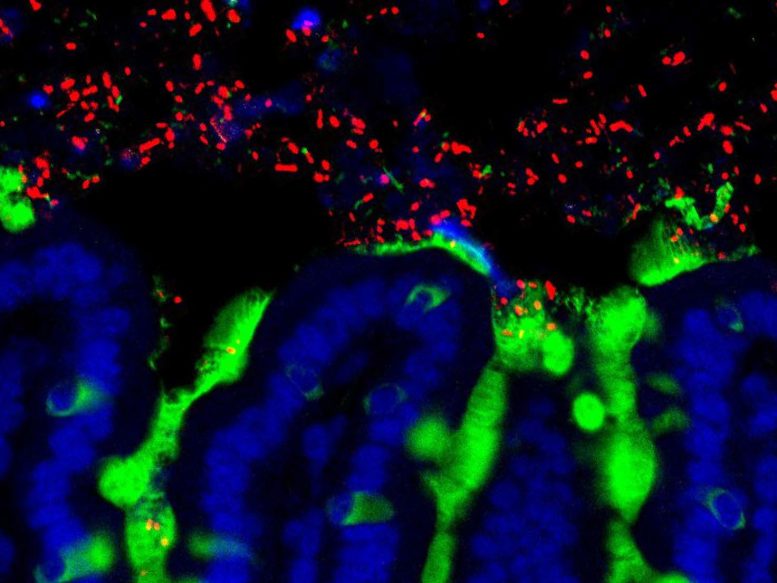The digestive microbiota has a significant impact on mental and social health, influencing cognition, stress and social interactions, as evidenced in animal studies and new research in humans. Hilke Plassmann and colleagues found that dietary supplements that affect gut microbiota can alter human decision-making in social contexts such as fairness in the ultimatum game, suggesting potential avenues for future therapeutic research.
Research reveals that the gut microbiome affects mental health and social behavior, and studies show that it can influence decision-making related to fairness, highlighting potential new therapeutic avenues.
Intestinal microbiota, made up of bacteria, viruses and fungi present in our digestive tract, plays a key role in our health, apart from digestion. Recent research highlights its impact on cognition, stress, anxiety, depressive symptoms and behavior. For example, mice raised in sterile environments show impaired social interaction.
Although these results are promising, most of these studies are conducted on animals and cannot be extrapolated to humans. It also doesn’t allow us to understand what neural, immunological or hormonal mechanisms are at work in this fascinating dialogue between the brain and the gut: researchers see a link between the composition of the microbiota and social skills, but don’t know exactly how one controls it. other. .
“Available data suggest that the gut ecosystem communicates with the central nervous system via different pathways, including the vagus nerve,” explains Hilke Plassmann (Sorbonne University, Insead), head of the Control-Interoception-Attention team at the Institut du Cerveau de Paris and professor at Insead. “It could also use biochemical signals that trigger the release of neurotransmitters, such as dopamine and serotonin, essential for proper brain function. »
A study of altruistic punishment
To determine whether the composition of the human gut microbiota can influence decision-making in a social context, the researcher and her colleagues used behavioral tests, including the famous “ultimatum game” in which a player is given a sum of money to share (fairly or unfairly) with another player , free to reject the offer if he considers it insufficient. In this case, no player gets any money.
Refusing a sum of money is equivalent to what we call “altruistic punishment”, that is, the desire to punish others when the situation is perceived as unfair: for the other actor, re-establishing equality (nobody gets money) sometimes seems more important than getting the amount of money. reward. The ultimatum game is then used as an experimental means of measuring fairness sensitivity.

Commensal bacteria (red) among mucus (green) and epithelial cells (blue) of mouse small intestine. Credit: University of Chicago
To fully exploit this effect, the researchers recruited 101 participants. For seven weeks, 51 people took nutritional supplements containing probiotics (beneficial bacteria) and prebiotics (nutrients that encourage the colonization of bacteria in the intestines), while 50 others received a placebo. All participated in the ultimatum game during two sessions at the beginning and end of the supplementation period.
Are bacteria pulling the strings?
The results of the study show that the supplement group was more likely to reject unequal offers at the end of seven weeks, even when the distribution of money was slightly unbalanced. In contrast, the placebo group performed similarly during the first and second testing sessions.
In addition, the change in behavior in the group receiving the supplements was accompanied by biological changes: the participants who at the beginning of the study showed the greatest imbalance between the two types of bacteria that dominate the intestinal flora (Firmicutes AND Bacteroides) experienced the most significant change in the composition of their gut microbiota with the supplement. In addition, they also showed the highest sensitivity to fairness during testing.
The researchers also noted a sharp drop in their levels of tyrosine, a dopamine precursor, after the seven-week intervention. For the first time, a causal mechanism is emerging: the composition of the gut microbiota could influence social behavior through the precursor of dopamine, a neurotransmitter involved in the brain’s reward mechanisms.
“It is still too early to say that gut bacteria can make us less rational and more receptive to social considerations,” concludes Hilke Plassmann. “However, these new results clarify biological pathways that we need to examine. The possibility of modulating gut microbiota through diet to positively influence decision-making is fascinating! We need to explore this path very carefully.
